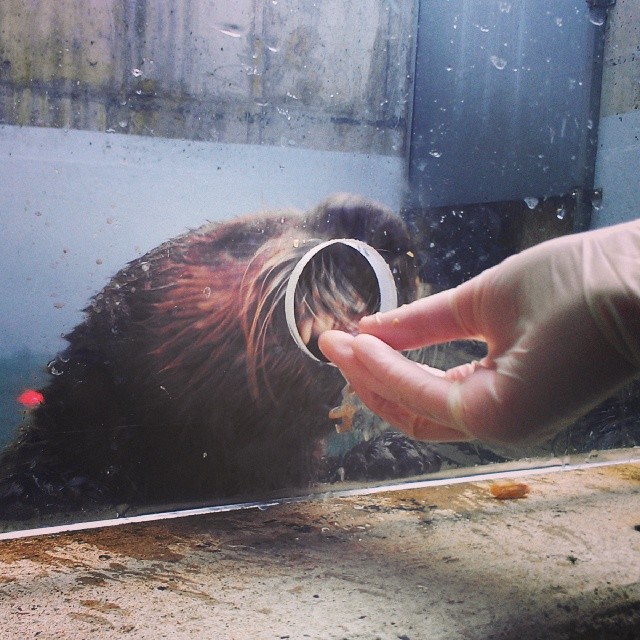Pittsburgh Zoo & PPG Aquarium
During my senior year in college, I found myself returning to my childhood fascination with the natural world. I wanted to learn more about our human relationship with nature and other animals. In my free time, I would research topics like agriculture, food systems, the pet trade, and conservation programs, just to expand my understanding of that dynamic. Eventually, I learned about an internship opportunity at the Pittsburgh Zoo & PPG Aquarium and immediately applied. After a brief interview process, I soon joined the Water's Edge team, working with the polar bears, sea otters, blue runners, and other marine animals in the department.
My role as an intern was to support the staff in their daily animal husbandry tasks. I would prep all the animals’ food for the day, help with feedings and cleanings, come up with new enrichment activities for the animals, educate the public, and assist in training sessions. I learned a lot about how zoos and aquariums are run, from the day-to-day operations to the planning and execution of long-term goals.
Reflecting on the experience now, I feel that the commonly used reason of “educating the public” does not justify the keeping of large animals in artificial enclosures in the majority of cases. Particularly in zoos, where the habitats are outdated and entirely too small to even come close to replicating natural ranges. While the Pittsburgh Zoo & PPG Aquarium do engage in some conservation initiatives, I do feel retrospectively conflicted about my experience working at the zoo. Many animals, including the polar bears, exhibited classic captivity stereotypic behavior indicating stress, like pacing, no matter what the tireless team of dedicated keepers tried to do. I did, however, learn a lot about the complicated problems surrounding conservation efforts from working with animals like polar bears and southern sea otters whose populations are threatened in the wild. And this being one of my first forays into animal husbandry, the experience did inspire me to pursue more conservation opportunities after college.


